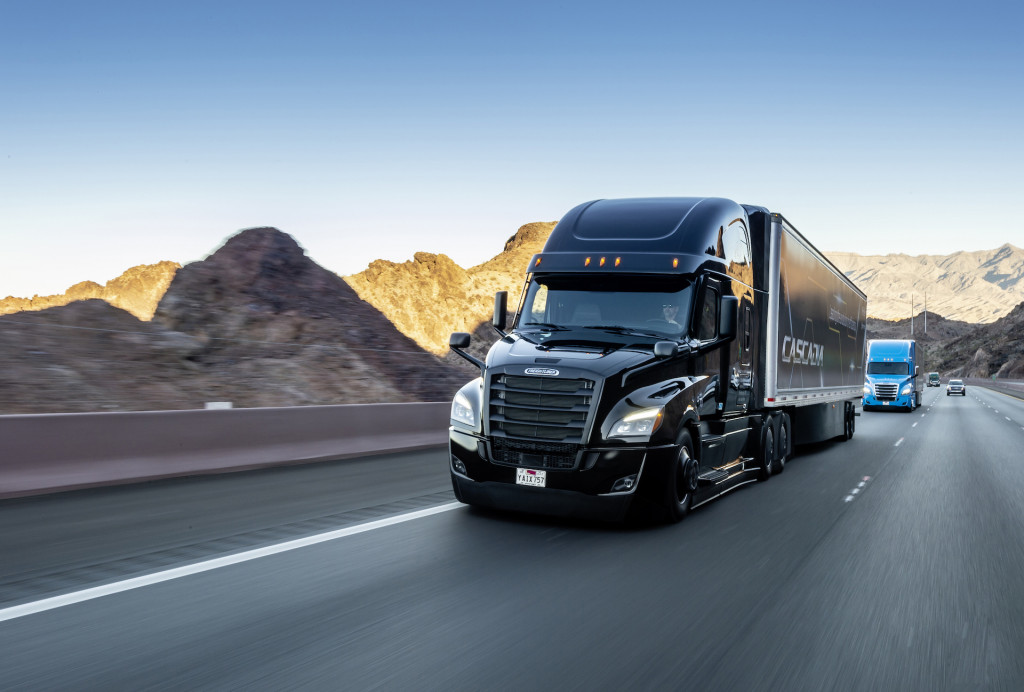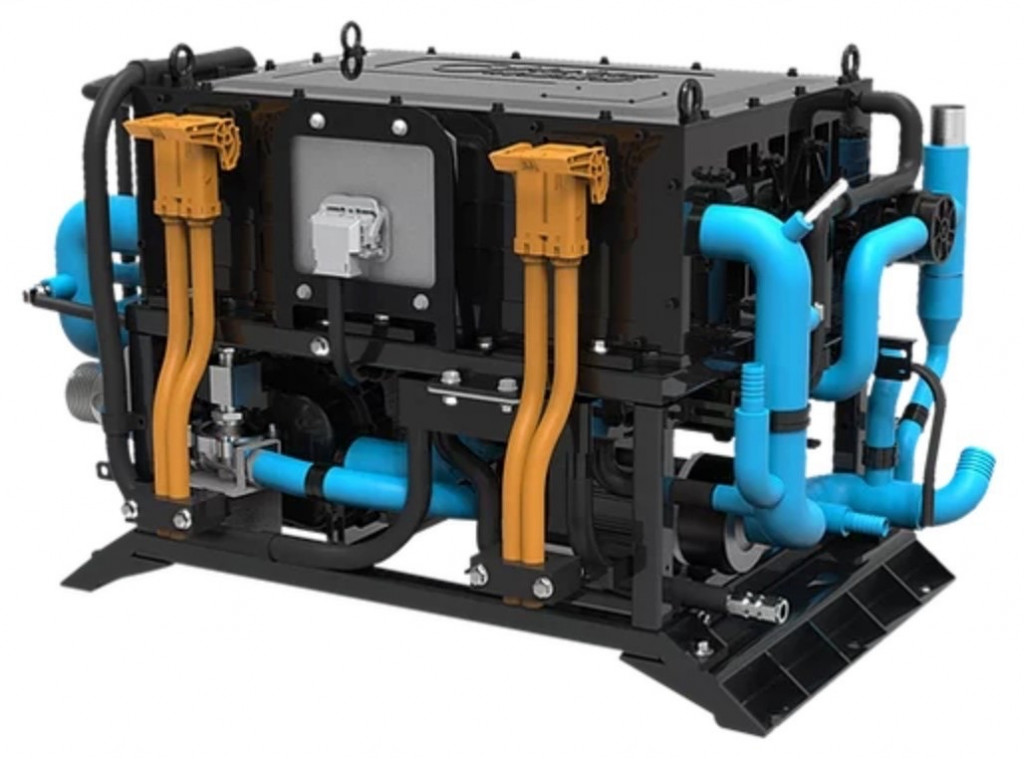In addition to building new zero-emission trucks, what if older diesel trucks were converted to hydrogen fuel-cell power? Two such initiatives were announced earlier this week.
Daimler Truck North America and diesel-engine manufacturer Cummins will update older Daimler-built Freightliner Cascadia semi trucks with Cummins-supplied fuel-cell powertrains, the two companies announced Wednesday.
The companies plan to have the first trucks ready by 2024. By then, Daimler also expects to have ramped up production of the battery-electric eCascadia, which was unveiled in production-ready form the same day as the fuel-cell announcement.

Freightliner Cascadia semi truck
Startup Hyzon Motors is pitching its own fuel-cell conversion program as a way to get cleaner trucks on the road more quickly. The company said in a press release that, due to supply-chain issues, the current wait time for a new truck chassis is up to 16 months. Converting existing chassis provides a shortcut.
Hyzon plans to offer 110-kw and 200-kw fuel-cell stacks. It said examples of the latter will begin testing by the end of 2022, with a commercial launch after that. The stacks will be manufactured at Hyzon's Illinois factory.

Hyzon Motors hydrogen fuel-cell stack
Other companies have expressed interest in building new fuel-cell trucks. In 2021, General Motors and Navistar announced plans to build 2,000 fuel-cell semis "in the near term." Toyota and Kenworth have been demonstrating "Project Portal" prototypes in drayage service at the Ports of Los Angeles and Long Beach for a few years at this point.
Perhaps the most ambitious is the California Fuel Cell Partnership trade group, which plans to put 70,000 fuel-cell trucks on the road by 2035, supported by 200 newly-built hydrogen stations.
But while commercial trucks are seen as a more viable option for fuel cells than passenger cars at this point, it's possible that even that window of opportunity is closing. Battery-electric vehicles will likely have enough range for all but long-haul applications, recent analysis claimed, leaving fuel-cell trucks as a small niche.












